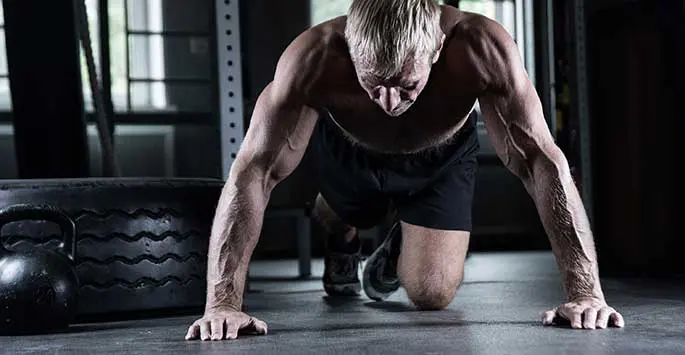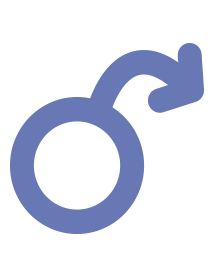The Combination of Testosterone Replacement Therapy (TRT) And Exercise Can Work Together To Help You Reach Your Health And Weight Loss Goals
Weight loss and getting more exercise are consistently atop the list of new year’s resolutions for Americans. As crazy as 2020 has been, about one in three Americans (31%) made New Year’s Resolutions at the end of 2020. The two most common goals for Gen-Xers (age 35-54) was to lose weight (49%) and exercise more (43%). Among Baby Boomers (those 55-72), 67% included “Doing more exercise or improving my fitness” among their goal for the new year, while 47% said weight loss was part of their plan for a better 2021.
Regardless of how committed you might be to these noble goals, your body may not cooperate as much as you’d like. One of the cruel ironies of aging is that around the age of 30 or so, your body starts to produce less and less Testosterone – the primary hormone that controls weight loss and muscle development.
Loss of Testosterone As You Get Older
In men, Testosterone begins to reduce at a rate of 1-2% annually. This may not sound like a lot, but it compounds like interest on a loan. By the time you reach 50 years old, your body could be producing one-third the amount of Testosterone you were making at 30.
For many men, the drop is even more significant. This medical condition, called hypogonadism, means that their Testosterone Level (T-Level) has dropped below a level that physicians consider normal. The resulting impact of Low-T includes increased body fat and lower muscle density (among a whole host of other negative symptoms.)
Obesity Lowers T-Levels
The problems of Low-T are often cyclical. We know that having Low-T can lead to weight and fat gain, but the inverse is also true and being obese can be a significant cause of Low-T in otherwise healthy men.
An article published on the Harvard Health Publishing website (Obesity: Unhealthy and Unmanly) confirms this fact.
“Obesity lowers testosterone levels. For example, a 2007 study of 1,667 men ages 40 and above found that each one-point increase in BMI was associated with a 2% decrease in Testosterone.”
Another study in 2008 looked at more than 1800 men over 30 and concluded that waist circumference was a stronger predictor of low testosterone levels, even more than BMI.
“A four-inch increase in waist size increased a man’s odds of having a low testosterone level by 75%; for comparison, ten years of aging increased the odds by only 36%. All in all, waist circumference was the strongest single predictor of developing symptoms of testosterone deficiency.”
Treating Low-T with TRT
In the past two decades, there has been a significant focus in the field of men’s health on anti-aging and Testosterone Replacement Therapy. The number of men using TRT has tripled, and today more than 4 million men in the US are using TRT to help them improve their physical, mental, sexual, and emotional well-being.
TRT comes in several forms. The most popular are:
Each treatment method has its advantages, and the professional team at Boston Vitality can help you identify the right type of Testosterone Replacement Therapy that is best suited to your needs.
Testosterone and Exercise – A Symbiotic Relationship
Many men are coming to realize that Testosterone Replacement Therapy and Exercise are the tag-team champions of anti-aging. These two work hand-in-hand to help men feel better, work harder, and look their best at a time when other men typically begin to start to taper off in all three areas.
It has long been known that increasing your Testosterone will improve the results of your workout. These “gains” are achieved by increasing lean muscle, reducing body fat, and helping you to recover quicker from workouts. What has been discovered in the past decade is that there is a symbiotic relationship between TRT and exercise and that combining the two can be more beneficial than Testosterone Replacement Therapy alone.
A research team from the Department of Urology at Inje University in Seoul, South Korea, presented the results of a 2014 randomized control trial to the American Urological Association (AUA) called “Exercise improves the effects of testosterone replacement therapy and the durability of response after cessation of treatment.”
The study tested 50 men in their 50’s and 60’s who were experiencing hypogonadism (Low-T) with total serum testosterone levels (T-Level) below 350 ng/dl. Low Testosterone is diagnosed when levels fall below 300 nanograms per deciliter (ng/dL), so these men were on the low end of that range and on the cusp of or experiencing Low-T.
The researchers randomly split the group in half and assigned one group a 12-week course of TRT alone. The other half received the same 12 weeks of testosterone therapy but were also given a 20-week exercise program.
The exercise program consisted of 20 minutes of aerobics, 10 minutes of stretching, 30 minutes of strength training, and another 20 minutes of cardio. The group did this three times a week for 20 weeks.
Dr. Park and his team found that after 12 weeks, the T-levels were significantly higher in the exercise group (P = .019). Even at 20 weeks (8 weeks after stopping TRT), the exercise group still had significantly higher testosterone levels than the other group who took TRT but did not work out.
(As an aside, 72% of the men in the exercise group also saw a much greater improvement in erectile function after 20 weeks of combining TRT and exercise.)
Finding TRT Near Boston
If you are looking for a safe, professional, and discreet source for TRT in Boston, look no further than Boston Vitality. During the COVID 19 crisis our practice may often utilize a secure telemedicine protocol to make your treatment even more convenient and on your time.
Your personalized medication is sent directly to you, and you administer it in the convenience and privacy of your own home.
Ready to Start TRT?
Whether you’re a seasoned gym rat or just starting out on your New Year’s Resolution, it’s a fact that TRT can help you improve your workout and improve your gains.
If you are ready to look and feel your best, call Boston’s best TRT provider, Boston Vitality, at 781 399 5698 and get started today.


